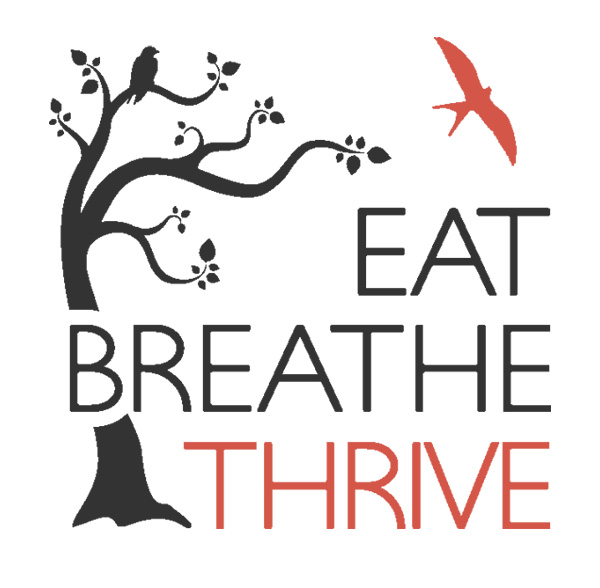
New Study Reveals Significant Benefits of Yoga in Eating Disorder Prevention and Recovery
Summary
Evidence suggests yoga may be a promising tool in the prevention and treatment of eating disorders, but there are few yoga interventions designed specifically for this population and rigorous literature on their efficacy is limited. This study examined the efficacy and feasibility of Eat Breathe Thrive, a yoga-based program designed to prevent and help people recover from eating disorders.
Researchers recruited 168 participants from communities throughout the United States and the United Kingdom. Compared to controls, Eat Breathe Thrive participants experienced significant decreases in eating disorder behaviors, depression, and difficulties regulating emotions. Researchers also found improvements in protective factors that reduce the risk of eating disorders, including self-care, self-compassion, body appreciation, social connection, and mindful eating.
After only a single session, participants reported immediate improvement in their sense of well-being. Most effects were sustained at a six-month follow-up.
Research Questions
The purpose of the study was to determine if the Eat Breathe Thrive program reduces the risk of eating disorders and boosts protective factors. The study explored the following questions:
Does the program decrease eating disorder behaviors and symptoms?
Do those who participate in Eat Breathe Thrive show improvements in depression and anxiety, and in how they cope with emotions?
Do those who participate in Eat Breathe Thrive develop protective factors against eating disorders, such as increased interoceptive awareness, mindful eating, and mindful self-care?
Methodology
Participants: Researchers recruited 168 participants from ten cities in the US and UK; including San Francisco, London, Edinburgh, Los Angeles, Richmond, Las Vegas, and Concord. Participants were between the ages of 18 and 65, English-speaking, not pregnant, and had not participated in an Eat Breathe Thrive program before. Those who completed the study received a Lululemon gift card as compensation.
Intervention: The manualized Eat Breathe Thrive intervention consists of seven weekly sessions. Each session is two hours; approximately one hour of psychoeducation and interactive activities, followed by one hour of yoga and meditation.
Facilitators: Each program was led by two facilitators; one mental health professional and one certified yoga teacher or yoga therapist. All facilitators completed the Eat Breathe Thrive Facilitator Training, which includes a 3-day Immersion Course, a 6-month Training with supervision, and access to instructional videos and a comprehensive manual.
Study Results
Risk Factors for Eating Disorders
Researchers found the Eat Breathe Thrive program reduces the risk of eating disorders. Specifically, the study found that participants:
EATING DISORDER SYMPTOMS — Experienced significant immediate and long-term reductions in eating disorder symptoms
ANXIETY — Reported immediate reductions in trait anxiety
DEPRESSION — Reported sustained reductions in depression and fewer difficulties regulating emotions
PTSD — Experienced significant and long-term improvements in PTSD symptoms
DIFFICULTIES IN EMOTIONAL REGULATION — Reported fewer difficulties regulating emotions
Protective Factors for Eating Disorder Prevention
Researchers found the Eat Breathe Thrive program boosts factors that protect against eating disorders. Specifically, the study found that participants:
MINDFUL EATING — Engaged more frequently in mindful eating, even six months after the program ended
DISTRESS TOLERANCE — Experienced significant improvements in their ability to tolerate distress
INTEROCEPTIVE AWARENESS — Were better able to sense and interpret their bodily sensations (e.g. hunger and fullness)
FUNCTIONAL APPRECIATION — Felt greater appreciation for their body for its functionality, rather than its appearance
ADAPTIVE COPING — Reported using fewer dysfunctional coping strategies (i.e., self-blame)
BODY APPRECIATION — Reported feeling more respect and appreciation for their bodies
MINDFUL SELF-CARE — Engaged in self-care on a more regular basis after the program
SELF-COMPASSION — Felt greater compassion for themselves
SOCIAL CONNECTION — Reported feeling less lonely in their relationships
IN-THE-MOMENT WELL-BEING — Reported immediate improvements in stress, relaxation, and connection with their body after just a single session.
“After a single session, participants reported an immediate improvement in their sense of well-being.”
Acknowledgments
This study was conducted with approval and oversight from the University at Buffalo, under the supervision of Principal Investigator Catherine Cook-Cottone, PhD, C-IAYT. The study’s lead author, Esther Estey, PhD, received the Seymour Fisher Outstanding Body Image Dissertation Award for the research and was awarded a fellowship at Harvard Medical School and the Center for Mindfulness and Compassion. Co-investigators included Eat Breathe Thrive Founder Chelsea Roff, C-IAYT, and researchers Stephanie Rovig, Michael B. Kozlowski, and Wendy Guyker, PhD.
This study was made possible by a grant from Lululemon's Centre for Social Impact. Special thanks to Alison Murphy and Caitlin Powel-Bowman, who took a chance on a bold request and said yes to funding this research. Thank you also to Sarah Mendelsohn and Christena Devlin, who provided continuing support over the grant period to see the project through to the finish line.
Finally, we want to recognize all the Eat Breathe Thrive facilitators who led programs across three different countries for this research – Samantha Child, Nicole Schnackenburg, Liz Johnson, Rebecca Stephens, Mariel Chiang, April Lowe, Tatyana Plaksina, Whitney Owens, Sara Ackeret, Jessica Davis, McKenzie Casad, Wendy Hallett, Lara Scriba, Sarah McCaffer, and Lucy Ridley. These results are at least in part due to the human beings they are and the lives you touched.
“From state to trait, Eat Breathe Thrive creates a predictable experience of health and wellness that leads to long-term, trait-based change.”



